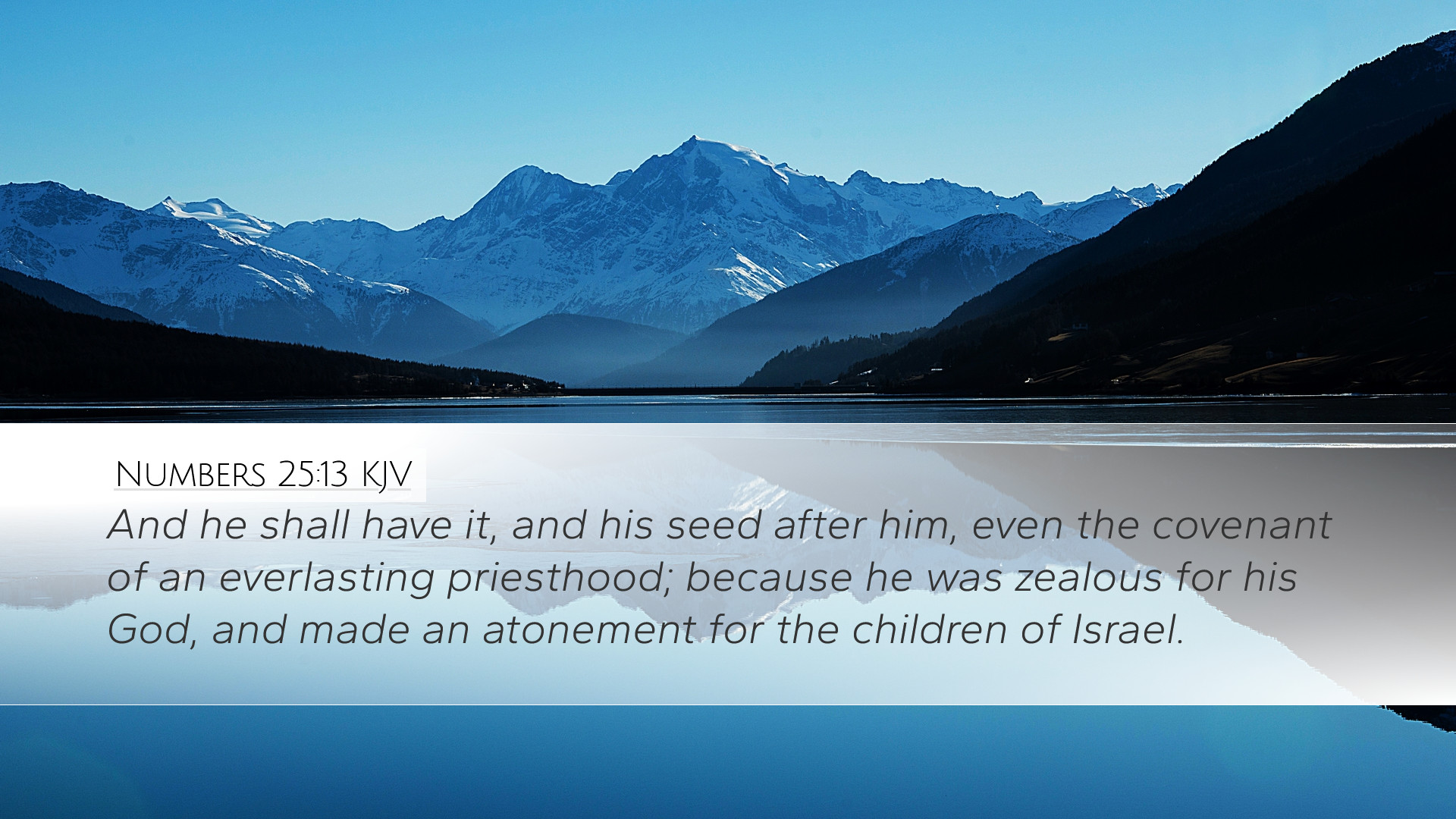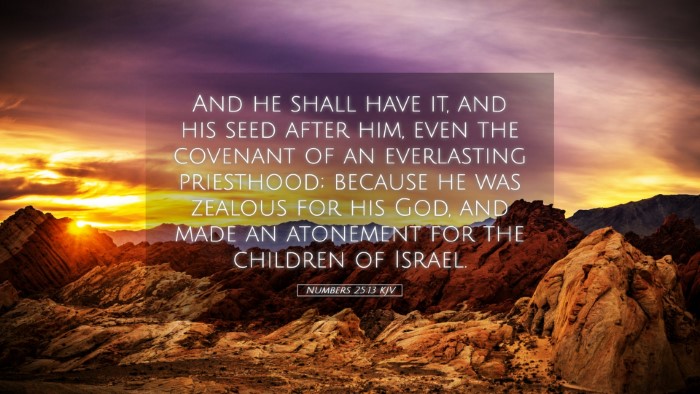Numbers 25:13 gives us insight into the legacy of Phinehas and the covenant he established with God as a reward for his zealous act:
“And he shall have it, and his descendants after him, a covenant of perpetual priesthood, because he was zealous for his God and made atonement for the children of Israel.”
Commentary Summary
Contextual Understanding
In the chapter preceding Numbers 25:13, the Israelites are faced with the consequences of idolatry and sexual immorality with the Moabites, which ignited God's anger against them. It is within this turbulent backdrop that the zealous actions of Phinehas arise, serving as a poignant response to sin and God's mercy.
Phinehas: A Symbol of Zeal
Phinehas, as the grandson of Aaron, exemplifies the priestly duty to preserve the holiness of God’s people. Matthew Henry notes that Phinehas acted not out of personal vendetta but from a profound zeal for God's glory. His actions demonstrate a commitment to righteousness that mirrors the divine expectation of priests.
Covenantal Reward
The covenant of peace promised to Phinehas and his descendants underscores the significance of righteousness in leadership. Albert Barnes asserts that this priesthood was not only a reward for Phinehas but a broader assurance of God’s everlasting covenant with those who demonstrate faithfulness and fervor in their service to Him.
Zeal with Knowledge
Adam Clarke emphasizes the difference between zeal and mere emotional fervor. Phinehas’s actions were grounded in understanding God's laws and the implications of disobedience. His approach teaches modern believers that genuine zeal for God's house must be accompanied by wisdom and knowledge of His Word.
Implications for Leadership
Pastors and church leaders today can draw significant insights from Phinehas’s example. The text encourages leaders to be vigilant against compromise in their communities. As Matthew Henry indicates, leadership requires a balance of courage and righteousness, where one must not shy away but effectively confront sin in love and truth.
Theological Reflections
This verse invites theological reflection on the nature of God's grace and judgment. In the New Testament framework, we see echoes of Phinehas’s zeal in the life of Jesus, who, in His purity, cleansed the temple and chastised religious hypocrisy. This connection serves to bridge the Old and New Testaments, illustrating the consistency of God's character across Scripture.
Application for the Modern Believer
For contemporary scholars and students of the Bible, Numbers 25:13 serves as a call to personal holiness and a reminder that our actions can lead to generational blessings or consequences. Each believer is invited to serve God with the fervor exhibited by Phinehas, ensuring that their zeal is rooted in the knowledge of God's law and transformative grace.
- Be zealous for God's glory.
- Confront sin in our midst.
- Pursue righteousness with a humble heart.
Conclusion
Numbers 25:13 not only reflects the historical and cultural significance of Phinehas’s actions but also serves as an enduring moral compass for believers of every generation. The passage transcends time, inviting a dedicated response to God's holiness grounded in genuine zeal and unwavering commitment to His covenant.


